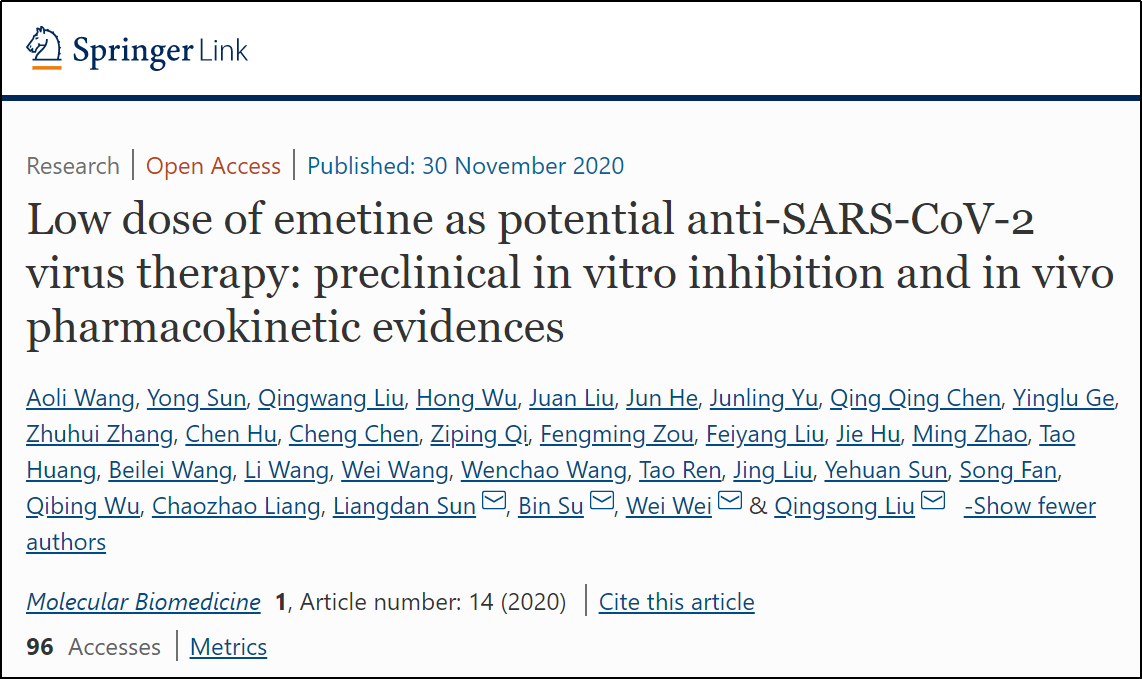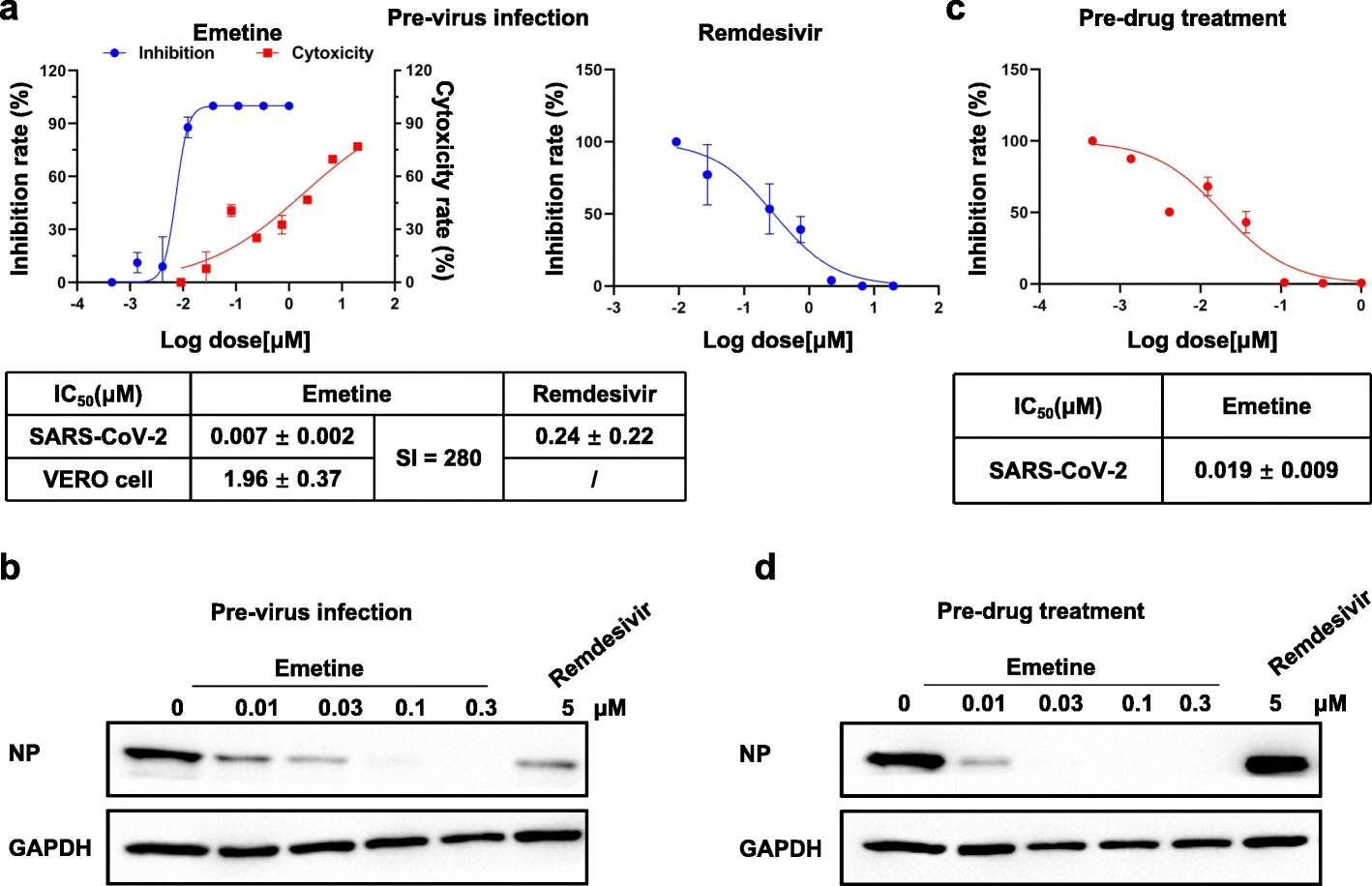Molecular Biomedicine | Low dose of emetine as potential anti-SARS-CoV-2 virus therapy: preclinical in vitro inhibition and in vivo pharmacokinetic evidences
2020-12-09

Open the phone and scan
The global pandemic of Coronavirus disease 2019 (COVID-19) has attracted extensive drug searching interets for the new coronavirus SARS-CoV-2. Currently, several clinically used “old” drugs have been repurposed to this new disease for the urgent clinical investigation. Herein, researchers from Chinese Academy of Sciences reported that low dose of emetine is a potential anti-SARS-CoV-2 virus therapy.

The worldwide pandemic of COVID-19 caused by a novel coronavirus SARS-CoV-2 since December of 2019 has quickly emerged as a global public health crisis. The elevated expression level of inflammatory cytokines such as IL-6 and TNF-α etc. has been observed in the severe patients. The high morbidity of SARS-CoV-2 infection and the lack of effective treatment currently brought an urgent demand for seeking for effective therapies. Although several drugs, such as Interferon, Ribavirin, Lopinavir-ritonavir, Remdesivir, Chloroquine, Hydroxychlroquine as well as some traditional Chinese medicines (TCM) exhibited primary efficacy either in vitro or in the clinical investigation for COVID-19 treatment. Currently, there are still no effective drugs approved for the treatment of SARS-COV-2 infection yet.
In the present study, an “old” drug Emetine was reported to potently inhibit SARS-CoV-2 virus replication and displayed virus entry blocking effect in Vero cells at low dose (Fig. 1). Emetine, available either as a pure chemcial or in the form of Ipecac syrup, is known as an anti-protozoal drug for amoebiasis, vomiting inducing reagent as well as anti-cough reagent. In addition, Emetine could significantly reduce the lipopolysaccharide (LPS) induced interleukin-6 (IL-6) protein level and moderately reduce the tumor necrosis factor (TNF-α) protein level in the M1 polarized THP-1 macrophages.
In vivo animal pharmacokinetics (PK) study revealed that Emetine was enriched in the lung tissue and had a long retention time (over 12 h). With 1 mg/kg single oral dose, the effective concentration of Emetine in lung was up to 1.8 μM (mice) and 1.6 μM (rats) at 12 h, which is over 200-fold higher than the EC50 of the drug. The potent in vitro antiviral replication efficacy and the high enrichment in target tissue, combining with the well documented safety profiles in human indicate that low dose of Emetine might be a potentially effective anti-SARS-CoV-2 infection therapy.

Fig. 1 Antiviral effect of Emetine in Vero cells
Article Access: https://link.springer.com/article/10.1186/s43556-020-00018-9
Website for Molecular Biomedicine: https://www.springer.com/journal/43556
Looking forward to your contributions


